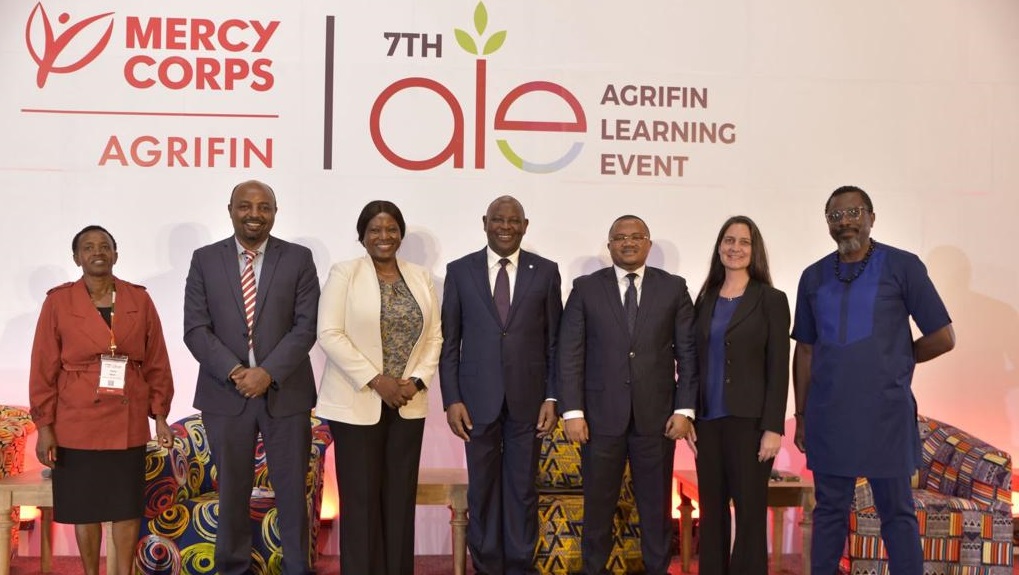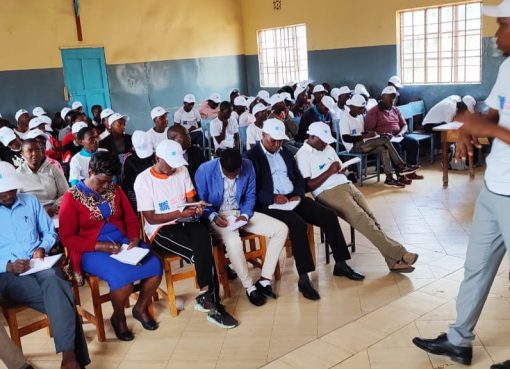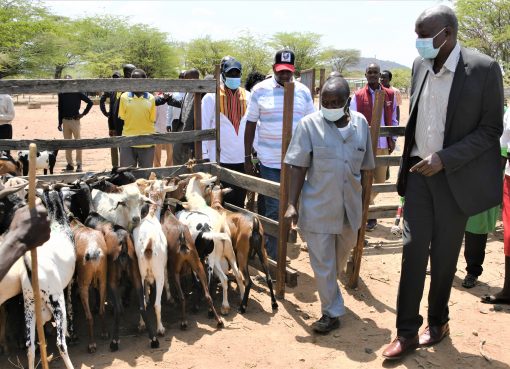Agriculture Cabinet Secretary (CS) Mithika Linturi has called for collaborative efforts between the different players in the industry in efforts to encourage cross-disciplinary innovations, leading to novel solutions.
Linturi said that pooling resources, both financial and human, through collaborative projects, will help them tackle large-scale agricultural challenges efficiently, benefiting both developed and developing regions.
The CS made the remarks in a speech read on his behalf by a Deputy Director of Agriculture Phyllis Njane when the Mercy Corps, in collaboration with its esteemed partners, held the 7th AgriFin Learning Event (ALE) that aims to chart the course for a resilient, inclusive, and sustainable future for smallholder farmers in Africa.
Themed “Resilient, Inclusive, and Sustainable Food Systems: Enhancing Collaboration to Scale Digital Solutions,” the event being held at a Nairobi hotel will highlight innovative strategies and transformative technologies in the agricultural sector.
“Food systems are at the cross-roads as a result of some of the most pressing challenges facing humanity today and more so the African continent. These include: hunger and malnutrition, biodiversity loss and climate change,” said Linturi.
The CS said that the African population will be 2.5 billion by the year 2050, compared to the current 1.4 billion, which will be a quarter of the world population living in Africa.
“In Kenya, the population is projected to increase from the current 53 million to over 90 million in 2050, which will put pressure on production resources and may lead to biodiversity loss,” he added
Linturi said that agriculture plays a fundamental role in our economy, contributing 33.3% of the Gross Domestic Product (GDP) directly and another 57% indirectly through linkages with other sectors.
“Moreover, the sector employs over 40% of our total population and more than 70% of our rural population. Under the theme of Agricultural Transformation and Inclusive Growth, our government manifesto recognizes agriculture as a sector with one of the highest growth multiplier effects on other sectors. Therefore, investing in agriculture has the potential to lower the cost of living, eradicate hunger, create jobs, expand the tax revenue base, and improve our foreign exchange balance,” voiced Linturi.
He explained that to have Resilient, Inclusive, and Sustainable Food Systems, the many agricultural challenges require interdisciplinary solutions, spanning from agronomy, genetics, engineering and data science.
Equity Group Holdings Managing Director and Chief Executive Officer Dr. James Mwangi said that 60% of their customers are small scale farmers across the eight ecological zones in the six countries that they operate.
“The approach to agriculture is strategic, the intent is to have 30% of our balance sheet, that is the funding part being in agriculture to correspond with approximately 34% contribution of GDP in agriculture,” he said.
Mwangi added that the only way to benefit was by adopting an ecosystem approach that moves from preparation to production, post-harvest management, processing and facilitating the market.
By Venah Onyango and Rhoda Narinoi





